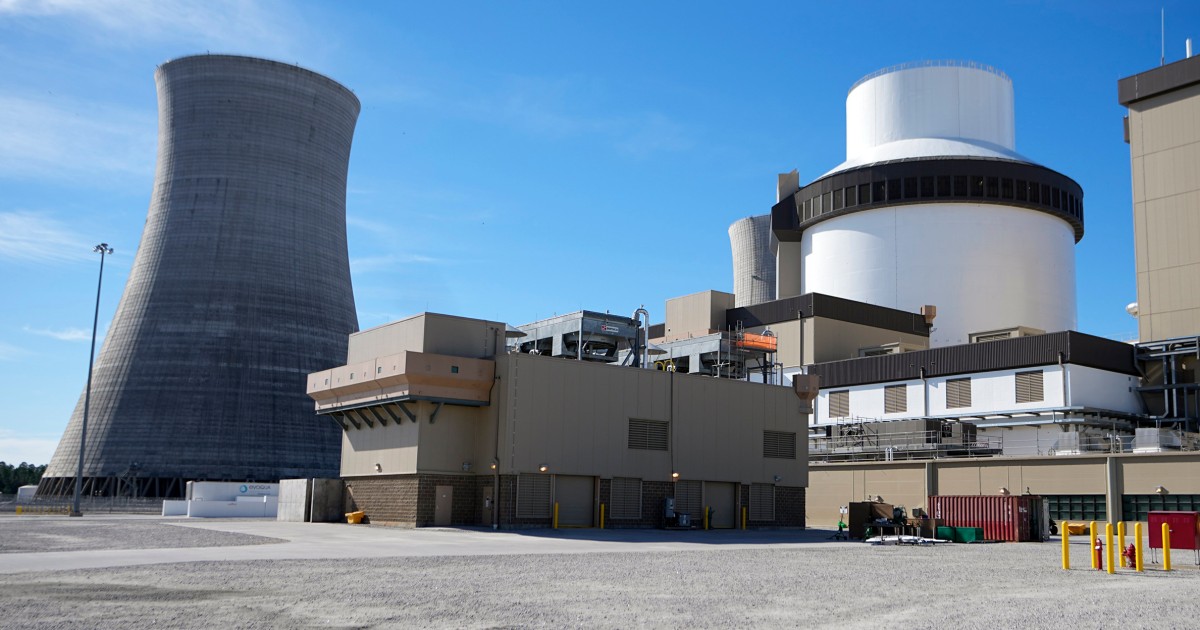First U.S. nuclear reactor built from scratch in decades enters commercial operation in Georgia::ATLANTA — A new reactor at a nuclear power plant in Georgia has entered commercial operation, becoming the first new American reactor built from scratch in decades.



The reduced operating emissions take 10+ years to outweigh the enormous construction emissions of nuclear. (Compared to gas.)
Fortunately the nuclear reactor can be operated for >50 years :)
Mean and median lifetime of a nuclear reactor is well under 30 years. Closer to 20 if you count all the ones that produced for 0 years.
Sure. But do you think Nuclear reactors will still be cheaper than renewables + storage in the 2070s? Nuclear is far more expensive per kWh than renewables, and the cost of storage is falling fast.
Good question, that one can only speculate on. IMO it’s a two part question.
First is that newly built nuclear plants are expensive. So the question depends on if we bite the bullet (build the reactor) today or in 2070. One built today will produce cheap power in 50 years.
For example in Finland we have reactors from 1980, that make up the backbone of stable energy production in our country. Those are going to be kept online till the 2050s. I’d argue at that point the cost per kwh will be mostly dependent on maintenance and fuel, so relatively small.
Wind and solar cannot reap the same benefits if you have to replace the plant every 20 years.
Storage is a completely separate question that is not taken into account when new wind farms and such are being built. If one was to account for storage today, the cost of renewables would be much closer to that of other means of production.
Also in the future, if storage costs keep falling due to billions of R&D money, similar effects could be achieved in nuclear via serial production and scale.
EDIT: Just read you have studied this stuff for real. Then ignore most of what I said, as you might know better :D
The cost of the power it generates in 50 years aren’t lower than the day it opens. If you amortise the cost of the plant over its life nuclear is stupid expensive per watt produced. It’s expensive enough that renewables + storage is cheaper. Renewables + storage is also a lot quicker to build than nuclear.
Even after the uptick in cost of renewables in the last year (which was dramatic) they’re still the cheapest new build power (even accounting for the integration costs). As an example here’s the most recent annual csiro report on energy costs by type. It doesn’t include full scale nuclear today because it’s known to be unviable, but even 2030 projections on “if smrs are commonly deployed at scale” they’re predicted to be a lot more expensive than renewables with integration costs.
https://www.csiro.au/en/research/technology-space/energy/energy-data-modelling/gencost
You can’t amortise your capital if just the variable operating and maintenance is more than replacing the reactor with firmed renewables. This is not the case yet, but betting that renewables won’t halve in price one more time in 30 years is a pretty stupid bet.
It was started a decade ago and finished now, not in the 2070s
I would say it’s not the BEST solution but in areas in the extreme north/south, where solar/hydro aren’t options (and I legit have no idea how well wind would do with freezing weather/snow etc) it would be better to have nuclear there than to try and transmit long distance to those areas. At least until we get some more breakthroughs in energy storage.
deleted by creator
I literally studied this exact nuclear design at University - the Westinghouse AP1000. You can look up the WNISR (World Nuclear Industry Status Report) if you don’t want to take my word for it.
Don’t forget, mining and enriching uranium still has a significant carbon footprint, far higher per tonne than any fossil fuel. Yes, it’s lower over time, but we need to be reducing emissions now, not in 50 years time.
Yeah I hate how laxness about fixing this in a timely manner has somehow convinced some people that shit like “carbon nuetral by 2070” is ok and helpful. And I’m just remembering when that study came out that said the climate as we know it is probably gone forever if we aren’t totally carbon nuetral by at least 2030
deleted by creator
Why are you comparing fossil fuels and nuclear “per tonne” that makes no sense. You replace tens of tones of nuclear fuel per year any you burn millions of tones in a comparable fosil fuel plant.
And regarding the carbon emissions from enrichment… Just use nuclear to power your enrichment plants. This way your emissions are extremely low because you don’t need much fuel and you use nuclear energy to produce nuclear fuel. French example: https://en.m.wikipedia.org/wiki/Tricastin_Nuclear_Power_Plant
Why compare per ton of fuel when per kWh would be the more meaningful metric?
What are the cradle-to-grave emissions of a nuclear plant, vs a fossil fuel plant, per kWh generated. That is a far more honest question, and I’m inclined to err on the side of nuclear.
Let’s not forget radiation caused by the power plant. Nuclear produces far less radiation than a coal plant.
deleted by creator
So you’re saying the construction effort requires at least a decade of nuclear powered energy to be achieved?
That could be up to 3.652 TWh. That’s more than my entire nation consumes in three years and we’re one of the world’s biggest suppliers of natural resources, including nuclear.
You’re mathing wrong.